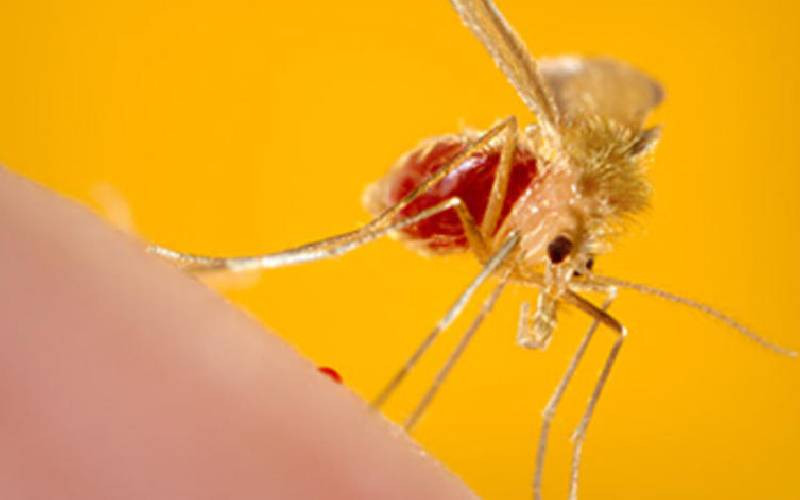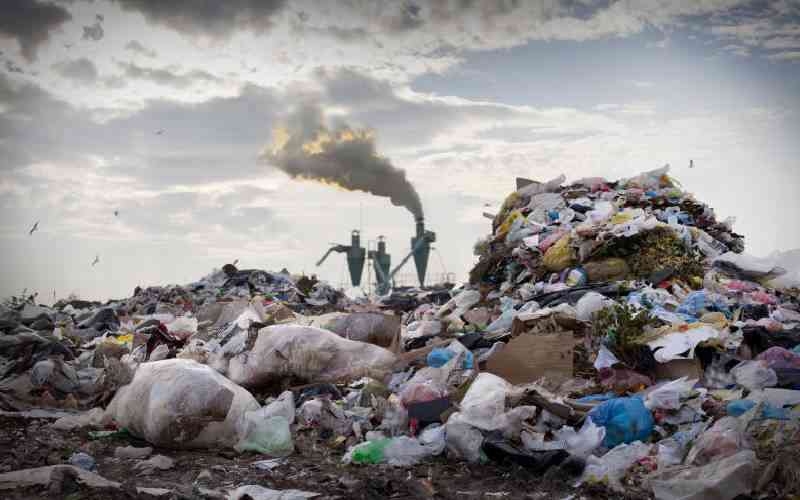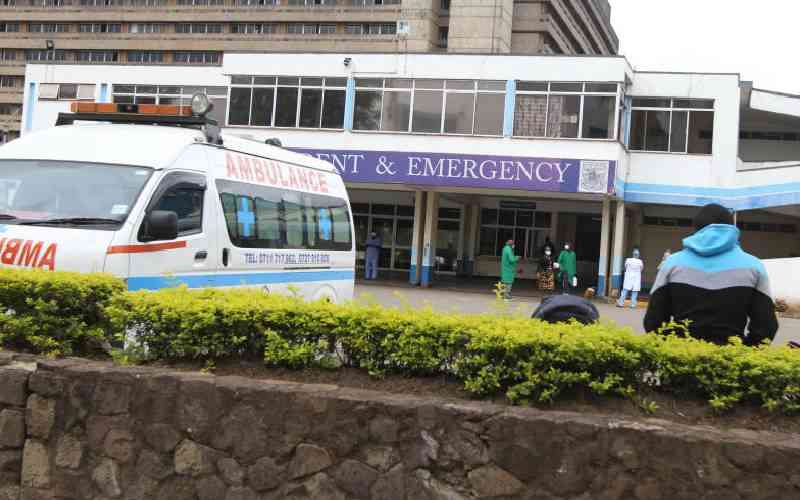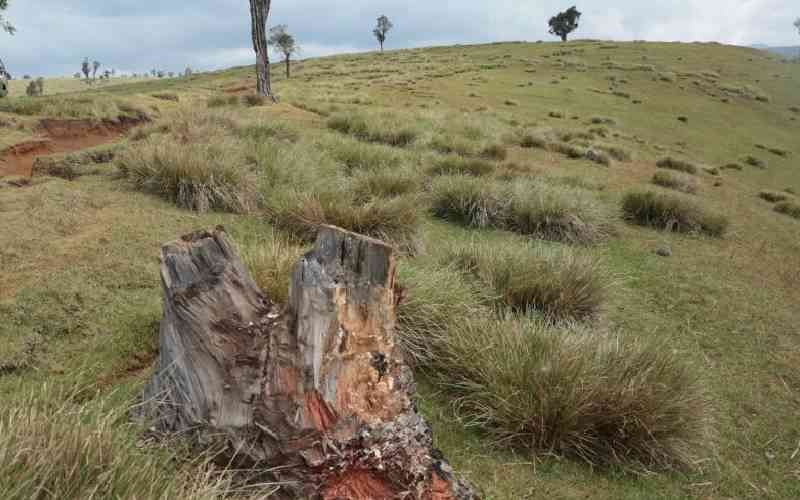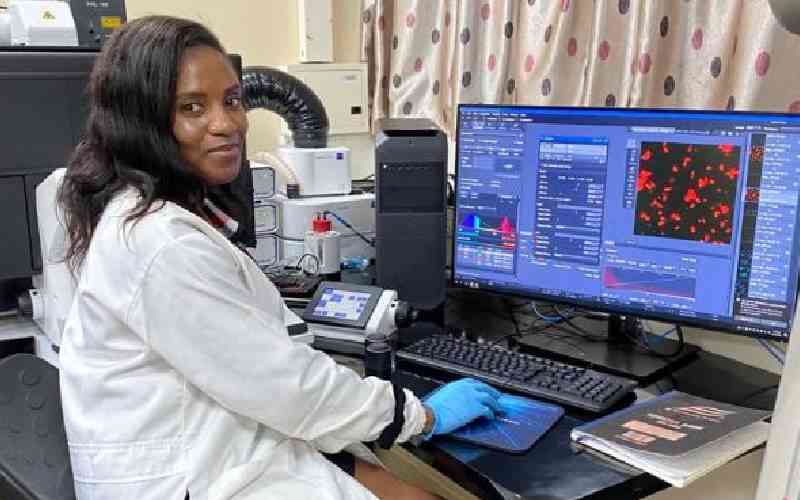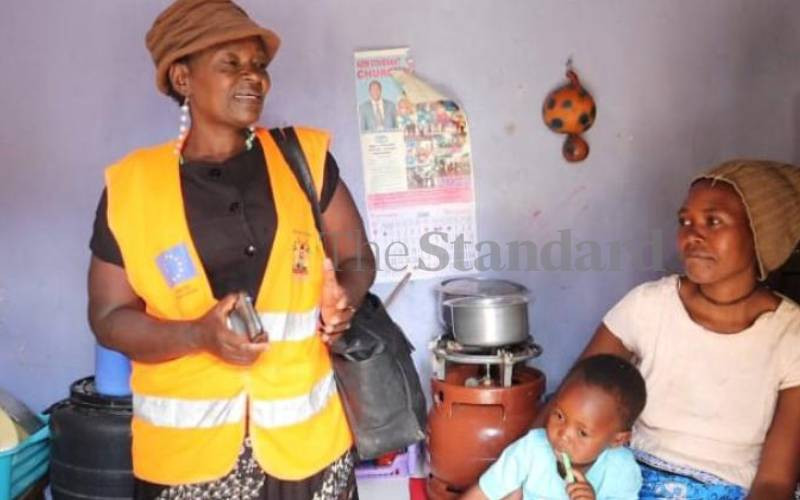
When Angeline Kyule wakes up each day, she sets her mind on walking up to 10 kilometres to serve her community.
Her patients, residents of Mutituni area in Machakos, fondly call her daktari or doctor. However, her only qualification is her the love for her people. She is not a qualified medical doctor but a community health volunteer, also known as a Level One health official.
A community health volunteer normally attends to about 100 families in their village. On any given day, she might give first aid to a patient or attend to a terminally ill patient. She might also guide a nursing mother on how to feed and take care of herself and her children.
And since health is a devolved function, community health volunteers work under county governments for a small stipend. What drives them is passion and resilience as they go the extra mile to feed and take care of their sick patients in the villages.
"The challenges are plenty and if I was being driven by money, I would have already given up because sometimes I have no fare or lunch and when I get to their homes, I may find their families hungry, so before I even talk of good health, I begin by giving them the little money I have for them to buy food. Other times, I buy medicine for them before referring them to the nearest hospital for attention," Angeline says.
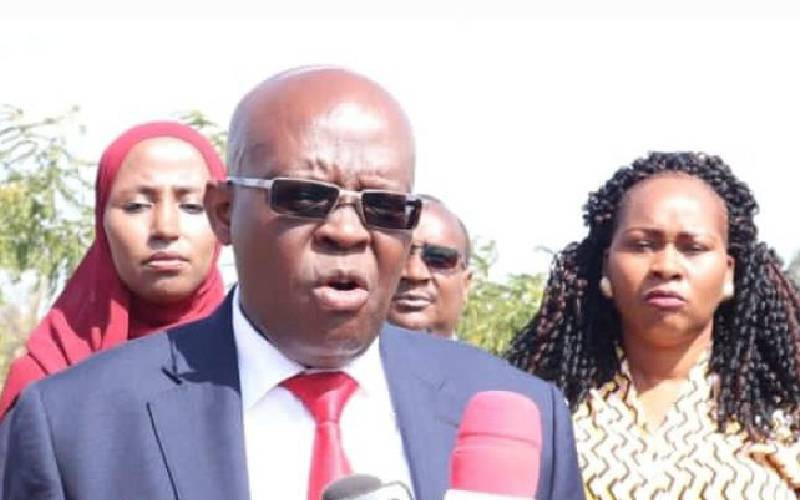
She says she has also encountered security threats where she would be chased away from certain homes. She says although this is risky, she goes ahead and invites her superiors who then talk to the families.
"I remember one man told me not to step into his compound because I was asking his wife to go to the hospital, blocked us for the longest time until she delivered at home. We did not understand his motive but such cases are common and we have been taught how to deal with them," she says.
The situation isn't much different for Stanislaus Maingi and Diana Kavutha, working in the peri-urban area of Athi River. With the recent drought in the country, many families have been hit with hunger and poverty.
- Seven months later, CHP programme yet to fully take off
- Saving lives of pregnant mothers, one backpack at a time
- Health Ministry rolls out electronic system to boost services
- Health promoters overlook Christmas rest with two-month salary delay
Keep Reading
They wake up each day to the reality that they have other families to feed as most in the area have been struggling to put food on the table.
"Sometimes we are called upon at night, we leave our families to attend to a person in need of medical attention and sometimes we end up spending our own money to ensure they get to the hospital," says Maingi.
At times they are unable to get ambulances to ferry their patients to the hospital and they are forced to look for alternative means.
He is, however, happy that during their service, the number of home deliveries has greatly reduced since they can identify pregnant mothers in good time and encourage them to go to pre-natal clinics where they are educated on the need to deliver at the hospital.
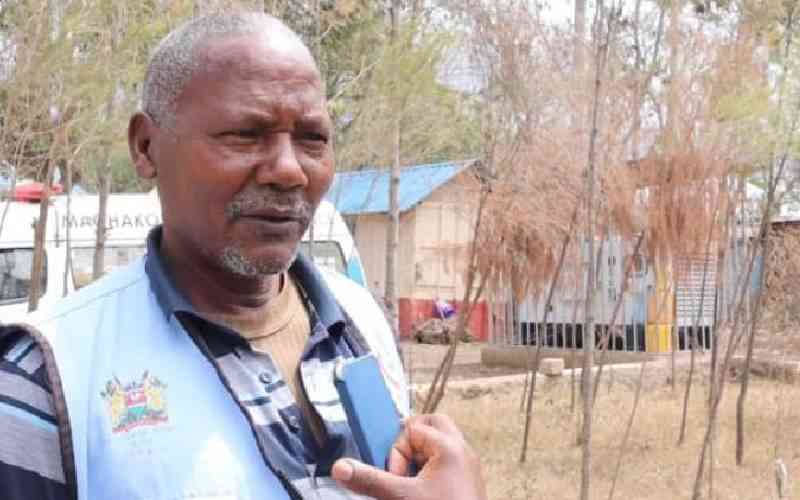
The volunteers say they have been working for almost 30 months without receiving their monthly stipends.
Machakos Health Executive Daniel Yumbya told The Saturday Standard that the community health volunteers would receive their delayed allowances after discussions with Governor Wavinya Ndeti.
"We will ensure they get their remunerations as laid down, to make sure we facilitate their travel and ease their burden of service," Dr Yumbya said.
He said they would link them up with the nearest dispensary where they can easily access an ambulance to ferry their sick patients to the hospital as well as ensure they get the necessary protective gear and equipment in times of need.
The story of the community health volunteers is not just in Machakos County alone but is being replicated across the other counties where they have to work for many months without their monthly stipend of Ksh2,500, now amounting to Ksh75,000 in arrears for the 30 months, have not been paid.
Community health volunteers are credited with contributing to the increase in Kenya's life expectancy from 51 years in 2000 to 66 years in 2018, according to a World Bank report.
 The Standard Group Plc is a multi-media organization with investments in media platforms spanning newspaper print
operations, television, radio broadcasting, digital and online services. The Standard Group is recognized as a
leading multi-media house in Kenya with a key influence in matters of national and international interest.
The Standard Group Plc is a multi-media organization with investments in media platforms spanning newspaper print
operations, television, radio broadcasting, digital and online services. The Standard Group is recognized as a
leading multi-media house in Kenya with a key influence in matters of national and international interest.

